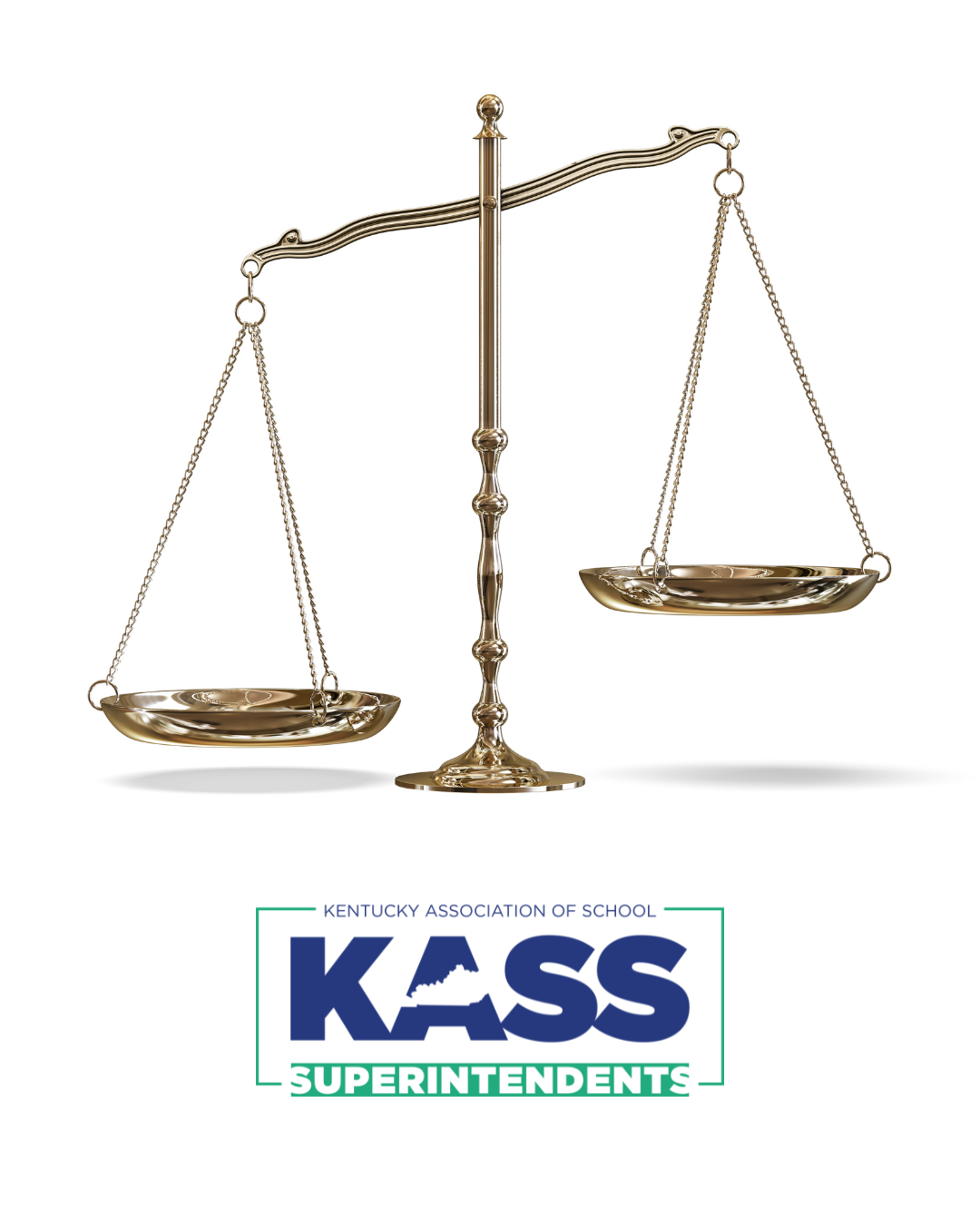
Measuring What Matters for the CommonWealth of all Students
February 14, 2025
Measuring What Matters for the CommonWealth of all Students

Kentucky’s public schools are filled with potential, but our current system of accountability does not fully capture the breadth of student learning and success. At the Kentucky Association of School Superintendents (KASS), we believe it’s time to rethink how we measure student progress and school effectiveness. The current system, overly reliant on single-test measures and largely based on federal and state standards, fails to paint a complete picture of what’s happening inside Kentucky’s classrooms. It’s time for a change—one that puts students first, fosters innovation, and supports educators in meaningful ways.
The promise of the Kentucky Education Reform Act (KERA) was remarkable, outlining capacities to ensure that students possessed the knowledge, skills, and dispositions across a whole host of areas to be successful in life. Initially, the KIRIS system sought to measure these capacities in very forward thinking ways. Unfortunately, the advent of No Child Left Behind and other factors has left Kentucky’s accountability framework largely defined by standardized test scores. While assessments play a role in measuring student achievement, they often fail to capture the full learning experience. Schools and districts should not be evaluated solely based on a one-size-fits-all approach. Instead, accountability should be flexible, allowing communities to emphasize the values that matter most to them while maintaining high standards. Kentucky is a complex and diverse place - our accountability system should reflect that.
Some of the key concerns with the current system include:
- Limited Measures of Success: A single test score cannot fully represent a student’s knowledge, skills, or growth over time. Can a science teacher make instructional decisions when a student takes a singular test one time every 3 years?
- Lack of Real-Time Feedback: Many assessments do not provide timely or useful feedback to students or teachers, making it difficult to adjust instruction effectively. Students take these assessments in May and it’s September before any relevant data is available.
- Overburdening Educators: Kentucky has exceeded federal testing requirements, adding layers of bureaucracy that do not necessarily improve student learning outcomes.
A more effective system would provide school districts with greater flexibility while maintaining high standards for all students. By shifting toward an accountability model that prioritizes growth and multiple measures of success, we can create a system that truly reflects student learning and progress.
Aligning Accountability with Workforce Readiness
As noted in the Prichard Committee’s recent article, “Making Kentucky High School Diplomas Matter,” employers are looking for graduates who can think critically, communicate clearly, and adapt to new challenges. Thirty five years ago, these were similar skills that KERA promised Kentucky students. These skills are not captured by traditional test-based metrics, but they are cultivated through personalized and innovative educational approaches.
School districts across Kentucky have developed a Portrait of a Learner/Graduate that represents a transformational approach to education. Instead of focusing solely on standardized test scores, this framework emphasizes the development of durable skills such as:
- Critical thinking
- Collaboration
- Communication
- Creativity
- Adaptability
Employers consistently identify these competencies as essential for success in today’s rapidly evolving job market. A graduate who can adapt to challenges, communicate effectively, and work collaboratively is far more prepared to contribute meaningfully to their community and the workforce than one whose education was defined solely by test scores.
The Vision for a New Accountability Framework
Kentucky’s United We Learn Initiative presents a unique opportunity to rethink how we assess student success. This framework balances traditional education priorities around reading, math, transition readiness, and graduation rates with a local component that’s more agile when the local context changes. By designing an accountability system that aligns with these values, we can ensure that education in Kentucky is meaningful and impactful.
A more effective system would:
- Prioritize Student Growth: Rather than comparing one group of students to a different group of students, we should measure student learning progress over time.
- Offer Multiple Ways to Demonstrate Learning: Students should be able to show proficiency in various ways, such as projects, presentations, and portfolio assessments, rather than relying solely on standardized tests.
- Reduce Unnecessary Mandates: Schools should be free from excessive testing requirements that do not add value to the learning experience.
- Embed Workforce-Ready Skills: Ensure accountability includes measures for critical thinking, collaboration, and adaptability to align with employer expectations.
This shift will not only benefit students but also support teachers by fostering a culture of innovation and adaptability in the classroom.
Accountability That Works for Everyone
A well-designed accountability system benefits both students and educators. For students, it means access to diverse learning opportunities and assessments that truly reflect their strengths and abilities. For teachers, it means a system that values their work and encourages creativity in instruction.
By moving beyond test-driven accountability, Kentucky can:
- Provide a more accurate representation of student achievement.
- Help recruit and retain passionate educators by creating a system that supports and empowers them.
- Foster community-driven education, ensuring that schools align with local values and needs.
- Strengthen workforce connections, ensuring graduates are prepared for meaningful careers.
The future of Kentucky’s education system depends on our willingness to embrace change. By advocating for a new, more effective accountability system, we can ensure that every student has the opportunity to succeed in a way that reflects their unique strengths and potential.
Legislative leaders and education policymakers must work together to develop an accountability system that puts students first and supports educators.
Kentucky’s children deserve an education system that measures what truly matters. Let’s work together to build a brighter future for all students.

March 20, 2025
Henry County Schools, located in Kentucky’s Golden Triangle, is making significant strides in student success through investments in school safety, career and technical education (CTE), and academic excellence. With legislative support fueling these advancements, the district is creating a brighter future for students by ensuring they have access to industry-relevant training, a secure learning environment, and evidence-based curriculum programs. Prioritizing Student Safety with Expanded SROs School safety is a top priority for Henry County Schools, and thanks to increased legislative funding, the district has expanded its School Resource Officer (SRO) program. An additional officer has been assigned to elementary schools, providing younger students with a safer learning environment. This initiative underscores the district’s commitment to student well-being and fostering a positive school culture. Investing in Career & Technical Education (CTE) for Future Workforce Success To prepare students for high-demand careers, Henry County Schools has upgraded its CTE programs with state-of-the-art equipment and software. These improvements impact pathways in: Media Engineering Health Science Business Agriculture By integrating industry-standard tools into classroom learning, students gain hands-on experience that makes them more competitive in today’s workforce. This initiative is a game-changer for career readiness, ensuring graduates leave high school equipped with the skills needed for success. Academic Gains Through Evidence-Based Curriculum & Leadership Development Academic excellence remains at the heart of Henry County Schools. The district has implemented an evidence-based Reading and Math curriculum for grades K-8, alongside the Leader in Me program—a leadership initiative designed to improve student engagement and school culture. By the Numbers: How These Investments Are Paying Off Henry County Schools is seeing measurable improvements across multiple areas: ✔️ Ranked 13th in Kentucky for Reading & Math growth (out of 172 districts) ✔️ Largest academic score increase in the OVEC region (from 56.87 to 62.85) ✔️ Notable reductions in novice performance across nearly all grade levels ✔️ Increase in students achieving proficiency & distinguished levels on assessments Beyond academics, the district has also made incredible strides in school culture and climate : ✔️ School Climate ranking improved from 124th to 19th in the state ✔️ Staff-Leadership relationships jumped from 132nd to 14th ✔️ Student Behavior ranking surged from 71st to 8th Community & Legislative Support: The Driving Force Behind Success These remarkable improvements wouldn’t be possible without legislative support, grant funding, and community partnerships. With continued investment, Henry County Schools can further expand career pathways, safety initiatives, and innovative learning opportunities. What’s Next for Henry County Schools? With this momentum, the district is planning: ✅ Further expansion of CTE pathways to provide students with cutting-edge career training ✅ Ongoing implementation of evidence-based curriculum for even greater academic success ✅ Potential for additional SRO placements to strengthen school safety Henry County Schools: A Model for Student Success At Henry County Schools, education isn’t just about textbooks and test scores—it’s about preparing students for a successful future. Whether through safer schools, hands-on career training, or innovative teaching methods, the district is setting a new standard for excellence in education. For more information, visit Henry County Schools website.
March 13, 2025
Kentucky’s Workforce Innovation Board has officially recognized education as a high-demand sector. Every career begins with an educator and it’s imperative that as we recognize the demand, we provide solutions to addressing the challenge. This will mean every education stakeholder - legislators, educators, the Department of Education, parents, and students, must help find solutions to strengthen the pipeline of qualified educators. As the state faces teacher shortages and increasing demands on school leaders, the Kentucky General Assembly has the power to enact policies that will make a lasting impact. At the Kentucky Association of School Superintendents, we believe every district deserves a strong superintendent, every school deserves a highly effective principal, and every classroom a highly qualified teacher. Additionally, many other roles are part of the education sector: instructional assistants, nutrition service personnel, administrative and clerical staff, district leadership, etc. Education as a profession must have bold leadership if we are to see a strong and vibrant Commonwealth. It is foundational to everything we do. To ensure every Kentucky student has access to high-quality teachers, the legislature must focus on removing barriers to entry, providing financial incentives, and aligning workforce development efforts with education needs. Here are key areas where legislative action is critical. 1. Prioritizing Education Workforce Legislation in 2026 The General Assembly should convene a panel of stakeholders to provide policy and budget recommendations. This panel should include legislators, school and district leaders, teachers and other school personnel, workforce leaders, and post-secondary institutions. Clear guardrails from lawmakers will help shape sustainable, long-term solutions. This effort should be a top legislative priority outside of the budget process but must work in tandem with state funding initiatives to ensure financial feasibility. Senator Wise and the implementation of the School Safety and Resiliency Act (2019) is a great example of the type of panel we recommend. There are many other examples of past legislation where this approach has led to great outcomes for education and sustainable policy solutions. Our blog last week touched on a few of this and can be found HERE . 2. Allocating Workforce Development Funds to Education Kentucky already invests in workforce development initiatives for high-demand fields, yet education often remains underfunded in these efforts. The legislature should explore ways to direct state workforce development funds that could support: Scholarships and stipends for aspiring educators in hard-to-staff regions. Utilizing regional workforce development boards to incorporate education into their planning and resource allocation. Incentives for school districts to establish grow-your-own teacher programs. There are examples in Kentucky of these things already happening. Since 1948, the state Department of Transportation recognized a need to have high quality civil engineers and developed a scholarship for students enrolled in Kentucky universities. In exchange, they give service in the summers and upon graduation to the Department. This model could easily be used with education as well, particular in high demand content areas and hard to staff locations. 3. Reforming Teacher Certification Pathways To expand the educator pipeline while maintaining quality, the legislature should empower the Education Professional Standards Board (EPSB) and the Kentucky Department of Education (KDE) to give a list of policy recommendations and changes that would: Streamline alternative certification pathways for mid-career professionals, particularly in STEM fields. Revise certification requirements to allow greater flexibility while ensuring teacher competency. Expand micro-credentialing programs that provide targeted training in high-need subject areas. Align workforce needs to programs and certifications through colleges and universities. Legislators have attempted to address some of these each session. What has unfortunately happened is that tweaks to the system have created difficulty for aspiring educators to understand, local districts to navigate, and post-secondary partners scrambling to determine the best options to support the profession. Instead of a piecemeal approach, policymakers must look holistically at the system and be bold with the simplification and alignment necessary to strengthen the educator pipeline. A Legislative Path Forward Addressing Kentucky’s education workforce crisis requires decisive action from the General Assembly. By prioritizing targeted legislation, allocating workforce development funds, and reforming certification pathways lawmakers can strengthen the future of public education in Kentucky. The time to act is now—Kentucky’s students, teachers, and school leaders are counting on it.

March 13, 2025
Empowering Students, Strengthening Communities Butler County Schools is making bold strides to provide high-quality education, career readiness, and equitable opportunities for its students. Located in Morgantown, Kentucky, the district serves over 2,100 students across five schools, focusing on academic excellence, character development, and preparing students for lifelong success. With the recent increase in SEEK funding and the expansion of dual credit scholarship opportunities, Butler County Schools is ensuring that every student—regardless of background—has the tools they need to thrive in an ever-changing world. Addressing Funding Disparities in Rural Schools One of the biggest challenges rural school districts face is maintaining facilities, attracting top educators, and providing students with the same cutting-edge educational experiences found in wealthier, urban areas. Butler County Schools has been at the forefront of advocating for Tier 1 Funding Equalization, ensuring that all Kentucky students have access to the same opportunities, no matter where they live. With additional SEEK funding, the district is tackling these disparities by: • Improving school facilities to create a safe and modern learning environment. • Enhancing teacher recruitment efforts to attract and retain highly qualified educators. • Expanding student programs to provide diverse career pathways and extracurricular opportunities. Expanding Dual Credit Opportunities: A Game Changer for Students One of Butler County Schools’ most impactful initiatives is its Dual Credit Scholarship Program, allowing students to earn college credits while still in high school. By reducing financial barriers, the district is helping families save thousands on tuition costs while preparing students for postsecondary success. The Impact: 📊 86.6% of Butler County students are Postsecondary Ready – achieving success through dual credit courses, academic readiness, or career certifications. 🎓 79.9% of students are Career Ready, with 66.4% earning Industry Certifications that set them apart in the workforce. 📈 10% increase in math proficiency and 8% increase in reading proficiency, demonstrating the effectiveness of targeted academic interventions. 📉 4% reduction in novice learners, showing a strong commitment to student support and success. Student Perspective: “The dual credit program has been life-changing for me. I’m earning college credits before even graduating high school!” – Butler County High School Senior Investing in Innovation: How Butler County Schools is Leading the Way To ensure personalized learning experiences for every student, Butler County Schools is investing in STEAM programs, career and technical education, and state-of-the-art resources. These efforts provide students with hands-on learning, mentorship opportunities, and industry partnerships that prepare them for real-world success. Key Areas of Focus: ✔ Technology & Career Training: Collaborating with local colleges and industry leaders to provide cutting-edge education and hands-on learning experiences. ✔ Community & Family Engagement: Partnering with businesses to offer internships, mentorships, and career exploration programs. ✔ Workforce Preparation: Ensuring students graduate with real-world skills, industry certifications, and a competitive edge in the job market. The Future of Butler County Schools: What’s Next? The district isn’t stopping here. Butler County Schools is committed to expanding opportunities, securing additional funding, and implementing new initiatives to better serve students. 🔹 Upcoming Enhancements: ✔ More career pathways aligned with workforce demands. ✔ Increased funding for STEAM education and technology integration. ✔ Additional scholarships to help even more students access college-level courses. Butler County Schools: A Commitment to Excellence At Butler County Schools, education isn’t just about academics—it’s about empowering students, strengthening communities, and shaping the leaders of tomorrow. Through increased funding, expanded dual credit opportunities, and a dedication to innovation, the district is ensuring that every student has the opportunity to succeed.

March 7, 2025
Expanding Career Opportunities Through State Funding For over 219 years, Elizabethtown Independent Schools (EIS) has been a pillar of academic excellence in Kentucky. However, prior to 2022, the district faced a significant challenge—a lack of state funding for Career and Technical Education (CTE). This funding gap limited the opportunities available to students, preventing them from gaining hands-on experience in high-demand fields. Thanks to LAVEC and Supplemental CTE funding, EIS has now transformed its CTE programs, creating new career pathways, upgrading learning environments, and forming strategic industry partnerships to ensure students graduate career-ready. The Power of Legislative Support in Education With newly allocated state funding, EIS was able to: ✔ Introduce Three High-Demand Career Pathways – The district launched Health Science, Education, and JROTC pathways to meet student interest and workforce demands. ✔ Enhance Engineering and Business Pathways – Investments in state-of-the-art equipment have elevated hands-on learning experiences. ✔ Establish a School-Based Enterprise – A student-run business within the business pathway is providing real-world entrepreneurial training, with plans for expansion next year. Measurable Impact: Student Success on the Rise The impact of these initiatives is already visible: Increased Enrollment in Career Pathways – More students are choosing CTE programs, preparing them for high-paying, in-demand careers. Stronger Transition Readiness – EIS is seeing a rise in students graduating with job-ready skills and industry certifications. Project-Based Learning Expansion – Hands-on learning is now embedded across all schools, preparing students for real-world problem-solving before high school. “This funding has completely changed what we can offer our students. They now have access to career pathways that were previously unavailable, setting them up for success beyond graduation.” – Paul Mullins, Superintendent The Role of Community Partnerships in Student Success One of the key drivers of EIS’s CTE expansion has been strong community and industry partnerships. These collaborations have provided resources, mentorship, and job training opportunities that directly benefit students. Baptist Health – A critical partner in launching the Health Science Pathway, providing medical equipment and supplies to support student training. By working with local businesses and organizations, EIS is ensuring that students gain hands-on experience and industry exposure, making them highly competitive in the job market. Looking Ahead: What’s Next for Career and Technical Education at EIS? The transformation of career and technical education at Elizabethtown Independent Schools is only just beginning. Looking ahead, the district is focused on: ✔ Expanding the School-Based Enterprise – Giving students even more opportunities to develop entrepreneurial skills. ✔ Growing Industry Partnerships – Strengthening ties with local businesses, healthcare providers, and educational institutions to enhance learning experiences. ✔ Exploring Additional Career Pathways – Identifying new programs that align with workforce needs and student interests. With continued support from legislators, industry leaders, and the community, EIS is shaping the future of career and technical education, ensuring that every student has the skills, knowledge, and experience needed to thrive in college, careers, and beyond. Join the Movement: Supporting the Future of CTE The success of Elizabethtown Independent Schools demonstrates the power of legislative funding in transforming education. By investing in career pathways, workforce training, and hands-on learning, districts across Kentucky can prepare students for real-world success. Want to learn more about how EIS is leading the way in career education? Visit their WEBSITE for more details.



